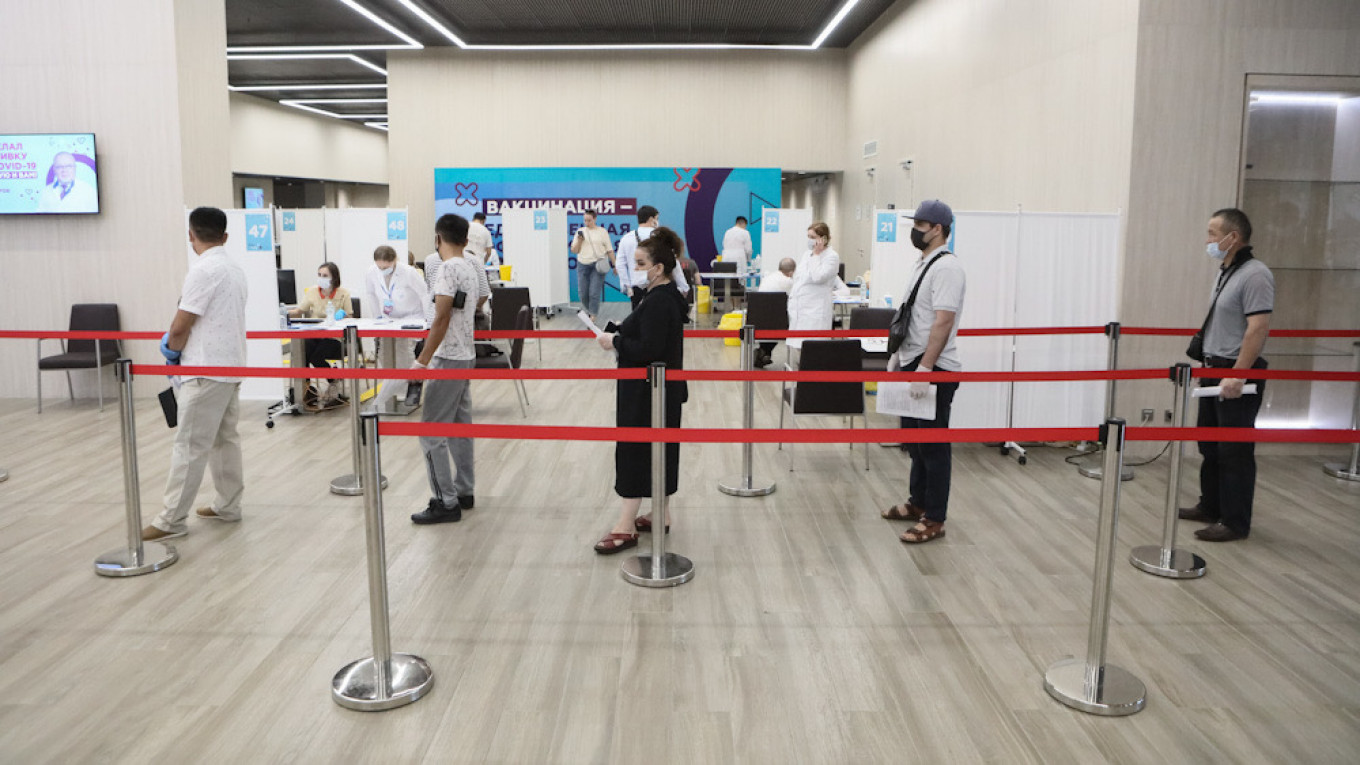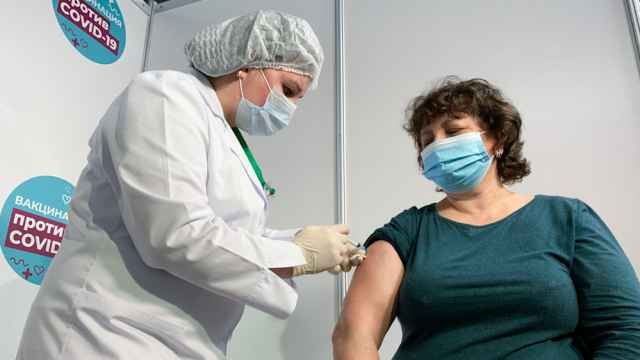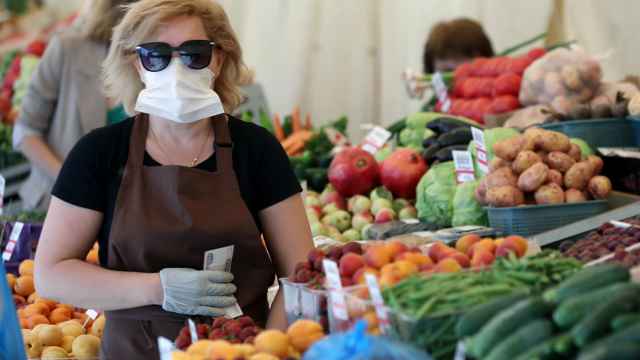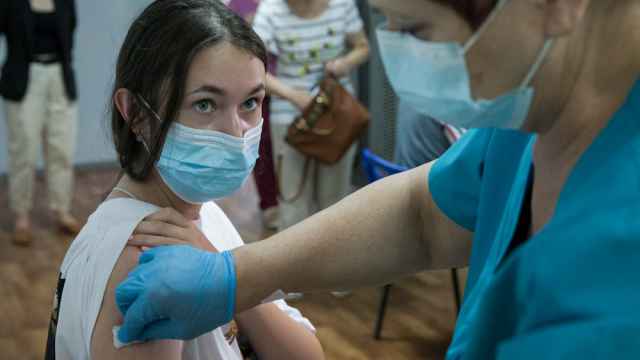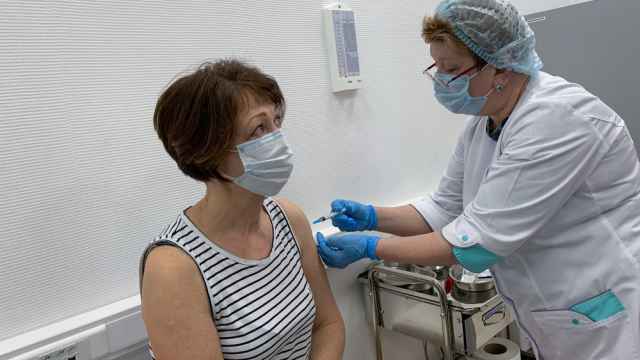Long lines formed outside Moscow vaccination sites over the weekend as demand for Russia’s third registered coronavirus jab outstripped supply and caused yet another shortage of the jab.
Videos published to social media showed Muscovites lining up outside a dozen vaccination sites where authorities had shipped around 850 doses of CoviVac each. Moscow City Hall, which had previously suspended CoviVac vaccinations due to shortages on June 22 and June 28, announced that it ran out of doses on Sunday.
Experts and scientists have linked CoviVac’s popularity to its use of a tried-and-true technology that deactivates the virus strain, as well as the Soviet-era habit of lining up for items perceived to be in demand.
“It’s an old story: If something is in short supply — no matter what — it means you have to stand in line for it,” Anton Barchuk, head of the European University at St. Petersburg’s institute for interdisciplinary health research, told the RBC news website on Monday.
"[The CoviVac] information campaign overlaps with Russians’ conservatism,” said Larisa Popovich, director of the Higher School of Economics’ institute for health economics. “And CoviVac is made using a conservative and well-known technology, whereas people are skeptical of the high-tech innovations used by EpiVacCorona and Sputnik V.”
Virologist and Moscow State University professor Alexei Agranovsky agreed with the argument toward Russians’ conservatism “especially when people are persistently frightened by the imaginary dangers of new vaccines.”
“CoviVac is made on the same principle as the classic vaccines against smallpox, polio, measles and other viruses. The problem is that it’s difficult to produce a lot of it. There will be an inevitable deficit,” Agranovsky told RBC.
Russia registered CoviVac in February and launched mass production the following month. Made by the state-run Chumakov Center, which is a Russian Academy of Sciences institute, CoviVac differs from Sputnik V and EpiVacCorona by using an inactivated virus.
While its developers place CoviVac’s efficacy at more than 80%, the vaccine, like its rivals, is still undergoing large-scale trials scheduled to run from June to December.
Chumakov’s director said last week that CoviVac is effective against the highly infectious Delta variant that is driving Russia’s deadly third wave of the pandemic. Several Russian regions including Moscow have made vaccinations mandatory for public-facing workers and introduced restrictions for unvaccinated people to contain the spread.
Russia’s health authorities said that 28.6 million people — or 19.6% of the population — have received at least one dose of a Covid-19 vaccine as of Tuesday.
A Message from The Moscow Times:
Dear readers,
We are facing unprecedented challenges. Russia's Prosecutor General's Office has designated The Moscow Times as an "undesirable" organization, criminalizing our work and putting our staff at risk of prosecution. This follows our earlier unjust labeling as a "foreign agent."
These actions are direct attempts to silence independent journalism in Russia. The authorities claim our work "discredits the decisions of the Russian leadership." We see things differently: we strive to provide accurate, unbiased reporting on Russia.
We, the journalists of The Moscow Times, refuse to be silenced. But to continue our work, we need your help.
Your support, no matter how small, makes a world of difference. If you can, please support us monthly starting from just $2. It's quick to set up, and every contribution makes a significant impact.
By supporting The Moscow Times, you're defending open, independent journalism in the face of repression. Thank you for standing with us.
Remind me later.


